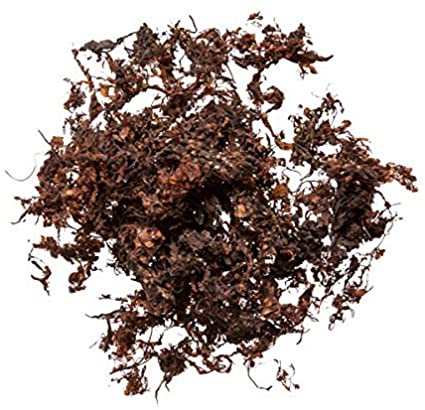
Seaweed has been consumed as a health aid and food enhancer for years in Asia, but recently there has been a growing interest in seaweed as a health superfood and for sustainable farming.
Seaweed, otherwise known as Hai Zao in Chinese medicine, is known as marine algae, or sea vegetable that grows primarily in salty waters. Three main classifications of seaweed are brown, red, and green. Brown seaweed includes kombu, which is eaten widely in Japan, the red variety includes nori (which is seen in sushi wraps) and dulse. Green is the most common and is known as wakame.
In Chinese medicine, seaweed is used to balance the yin and yang of the body. Your yin encourages fluid, lubrication, moistening, cooling, and stillness. Yang is associated with more heat, dryness, warming, and movement. As one gets older, it is common to get yin deficiency. When you have yin deficiency, heat rises due to yin depletion not balancing the yang energy. Many menopausal women experience this yin deficiency in the form of hot flashes, low back pain, night sweats, poor memory, fatigue, ear ringing, dry skin, and loss of vaginal lubrication. One food that has been shown to help is seaweed. Seaweed is in the category of “cold and salty” of food quality and temperature in Chinese medicine. It is said to nourish the yin and is eaten along with other foods like yams and black sesame seeds that help balance yin and yang.
In addition to helping yin deficiency, seaweed “softens hardness” and loosens phlegm. What this means is seaweed helps dissipate nodules and soft swellings, as in lipomas, cysts, lumps, and fat accumulation. Clinically, seaweed is used for swelling of the thyroid gland seen in goiter. See your acupuncture provider and get a diagnosis, formula, and diet specific to your body’s needs.
Seaweed has been shown to have loads of essential vitamins and minerals such as vitamin C, vitamin K, magnesium, calcium, iron, B vitamins, potassium, and folic acid. Most importantly, seaweed has a lot of iodine. Iodine helps the thyroid with growth, metabolism, and immune function. When your thyroid is functioning at a low level, you may experience fatigue, muscle weakness, palpitations, sensitivity to the sun, weight gain, and goiter. Iodine used to be abundant in rich soil but has been depleted nowadays.
Promising research indicates seaweed helping edema, fibroid tumors, limiting cancer growth due to phytochemicals called lignans, and boosting immunity. In addition, it has been used as an anti-inflammatory aid for arthritis, to lower blood pressure and high cholesterol, and to aid the respiratory system. Seaweed in Asia has been traditionally used for menopausal signs and symptoms, to reduce swollen lymph glands, and to boost libido. But in general, it is great for the skin, hair, teeth, and bones. Seaweed is very alkaline and helps the pH balance of the body.
Despite the benefits, there is a strong contraindication if you are hyperthyroid. In addition, moderation is key in all aspects. Too much iodine can raise the thyroid-stimulating hormones, and individuals who are sensitive can get heart palpitations, nervousness, irritability, and sweating. Check with your doctor to be sure an increase in iodine is right for you. Eat small portions about once a week.
